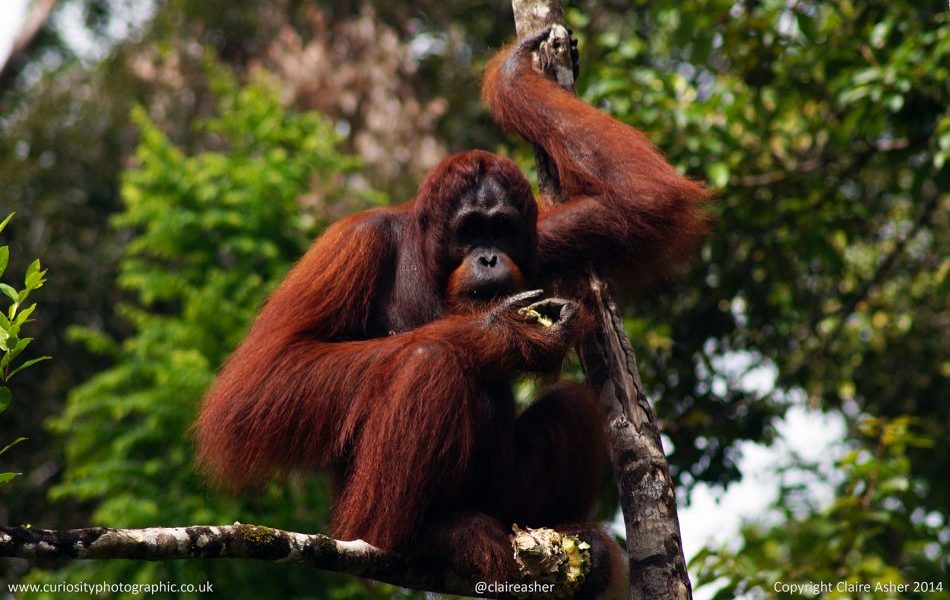I’ve written before about the issues surrounding our near-limitless demand for palm oil. So you might expect I’d be applauding Iceland for promising to cut palm oil from their own-brand products from 2019 onwards – the kind of self-imposed deadline most campaigners can only dream of. And you might think I’d be up in arms about the ban that has stopped their beautiful and heartbreaking advert from reaching millions. And you’d be partly, but not completely, right.
I think it is wrong that the advert has been banned. There seems to be nothing overtly political about it – saving the planet is not a partisan issue. Clearcast, the body who banned the advert, state that it was banned because it was created by Greenpeace, a body ‘whose objects are wholly or mainly of a political nature’. But that is an aside.
In promising to ban palm oil, Iceland might appear to be trying to save the planet, when in fact I believe all they are trying to do is save face.
Their campaign addresses the issue of palm oil while acknowledging none of the nuance, offering a solution that counter-intuitively may in fact make the situation far worse, driving more deforestation and emitting more carbon. What their campaign does excellently – and this has only been bolstered by the media coverage of their banned advert – is handle the horrible PR issue that palm oil has finally become.
Let me explain myself. Palm oil – millions of tonnes of the stuff – is driving deforestation across Southeast Asia and has been linked to illegal logging, wildlife crime and human rights abuses. Palm oil plantations cover an estimated 25 million hectares of Earth’s land. But it is still a remarkably productive crop. Replace it’s oil with any other plant-based oil, and you’d need several times as much land to produce the same final volume. In fact, a recent IUCN report warned that banning palm oil would drive more deforestation elsewhere in the world, particularly Africa and South America.

What we should be campaigning for is sustainably-produced palm oil, taking advantage of this industrious plant without stripping the soils of their nutrients, without killing Orangutans and other endangered species, and without cutting down a single tree.
But this idealism gets us into a rather sticky issue – it’s much more difficult (read: expensive) for companies to track the commodities they source right back through their supply chain and ensure they are purchasing from sustainable suppliers than it is to simply replace palm oil with an alternative, less productive, vegetable oil and avoid the negative media hype around the world’s most productive vegetable oil. There are plenty of alternatives on offer – soy, canola, olive, sunflower, rapeseed. But none can produce as much oil per square kilometre as the prolific oil palm.
What companies don’t want to admit is that they have little or no handle on their supply chains. They simply can’t tell you where your palm oil comes from, because they themselves don’t know. And none of us would probably like the answer.
For many commodities, like soy and palm oil, individual bean-level traceability is unlikely to ever be possible. By their nature these products tend to be ‘bulked’ – beans or nuts from tens or even hundreds of farms are mixed together for processing before export or sale, making it challenging to say where the constituents of the final product came from. But we can track commodities in terms of percentages, and a new tool, developed by the Stockholm Environment Institute and Global Canopy, is doing just that. Trase.earth links data on deforestation and CO2 emissions resulting from the cultivation of commodities like soy in Brazil and Palm Oil in southeast Asia, to sales and export records by specific suppliers – directly linking individual companies to the deforestation risk and environmental harm their activities are exposed to.
We need to push companies for greater traceability in their supply chains, so we as consumers can make informed decisions about what we buy. We don’t need blanket bans, and while an emotive Christmas advert or two is great to increase awareness, if consumers aren’t aware of the true environmental impact their shopping choices can have then there will be no pressure on companies to make a change.
Further Reading:
IUCN 2018 – Oil palm and biodiversity
Featured image is copyright of Claire Asher, Curiosity Photographic.





A couple of points that no one seems to talk about. A reason that palm oil is used to begin with in numerous products ranging from shampoo to chocolate is that palm oil improves certain products. Helps chocolate from melting and veg spreads solid at room temps. Any way with a little research one can see that many products have the addition of palm oil out of convenience not necessity. With regards to labeling It seems very dirty or shows the mentality of those writers of food labels that can’t simply write Palm Oil. There are reports that palm oil has numerous “alias’s” or numerous names based on who knows what. So if true is having so many names for palm oil as an ingredient to fool the consumer? Global deforestation is way too important an issue to humanities future whatever the reason to have so many names for palm oil which is to blame for causing deforestation. It seems companies are using what they can to have an edge at a time when farming practices are out of control.